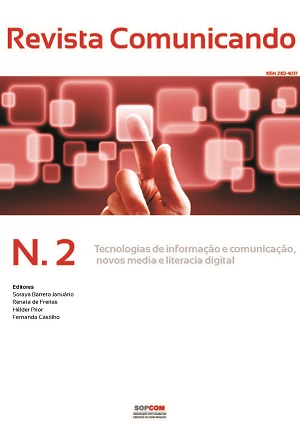Control companies: a brief reflection on the mandatory issuance of invoices
DOI:
https://doi.org/10.58050/comunicando.v2i1.145Keywords:
Control, surveillance, George Orwell, Big Brother, technology, receiptsAbstract
This work aims to explore the theme of control and surveillance, appealing to the theory of ‘Big Brother’, present in the work of George Orwell, Mil Novecentos e Oitenta e Quatro [Nineteen Eighty- Four]. Under the pretext of ensuring security, governments create measures that are no more than ways to control the lives of citizens, in particular with regard to their spending habits, by requiring the issuance of invoices, entered the decree- law 197 / 2012 and 198/2012.
For this purpose, we will discuss several dimensions related to this issue: a) reflection on the technology that makes it possible and the uses to which this entails, b) the blurring of boundaries between public and private life, with regard to access to networks information and communication, c) the hypermodern crisis and the loss of individual identity of the subject, in that it becomes part of a cyber-network, shutting down part of its human, relational and social component; d) the perversion of the subject to which lobbies support the "system", dehumanizing technology and controlling personal life .
Using a form of bureaucracy, democratic societies implement this system as a guarantee of control of fiscal crime when actually using this mechanism as a way to monitor the lives of its citizens. Castells, in Sociedade em Rede [The Network Society] (2005), talks about the difference between the virtual space as a "space of flows" that replaced the "space of places". The control when applied now in virtual space is inside their own culture, as advocated by Moisés Martins, in the book Crise no Castelo da Cultura (2011), is transposed into the virtual space. Bragança de Miranda (1997), in O Controlo do Virtual defines the virtual space as a "control room".
In the hyper-modern societies, Seroy & Lipovetsky (2010) speak of ‘ecranization’ as a phenomenon associated with social control.?
Downloads
Published
How to Cite
Issue
Section
License
The authors retain the copyright, but grant Revista Comunicando the right of first publication. The work will be licensed under a Creative Commons License - Attribution 4.0 International.


